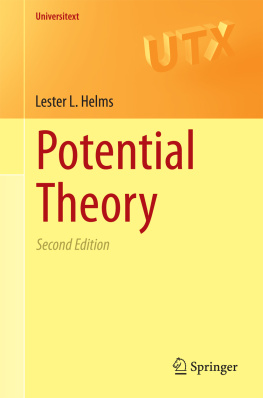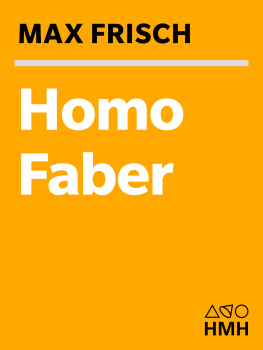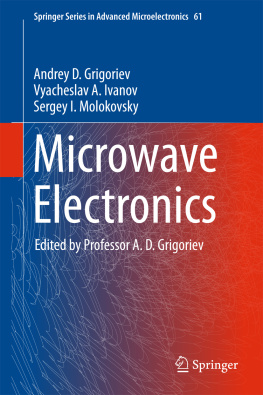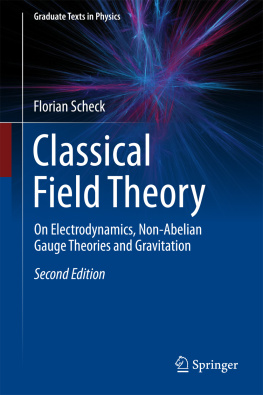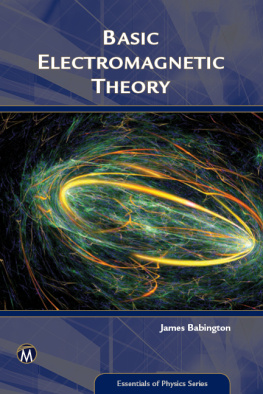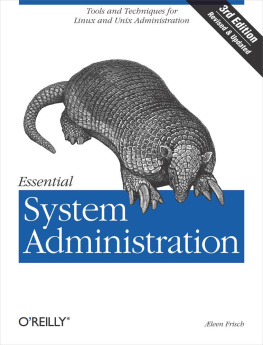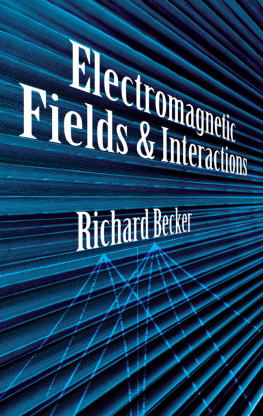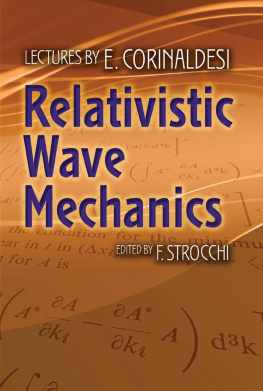
Frisch, Mathias Assistant Professor of Philosophy, University of Maryland
Inconsistency, Asymmetry, and Non-Locality
A Philosophical Investigation of Classical Electrodynamics
Publication date 2005 (this edition)
Print ISBN-10: 0-19-517215-9
Print ISBN-13: 978-0-19-517215-7
doi:10.1093/0195172159.001.0001
Abstract: This book has two principal aims: to investigate the conceptual structure of classical electrodynamics, and show that investigating a particular scientific theory can shed light on concerns in the general philosophy of science. It focuses on two basic issues on the interaction between charged particles and classical fields. First, what is the equation of motion of a charged particle interacting with an electromagnetic field? Second, how does the presence of charged particles or sources affect the total field? The book is divided into two parts. Part I focuses on particles different particle equations of motion and their properties. Part II focuses on fields and their symmetry properties in the presence of particles.
Keywords: classical electrodynamics,scientific theory,philosophy of science,charged particles,electromagnetic fields
Inconsistency, Asymmetry, and Non-Locality
end p.i
Oxford Studies in the Philosophy of Science
General Editor
Paul Humphreys, University of Virginia
Advisory Board
Jeremy Butterfield
Peter Galison
Ian Hacking
Philip Kitcher
Richard Miller
James Woodward
The Book of Evidence
Peter Achinstein
Science, Truth, and Democracy
Philip Kitcher
The Devil in the Details: Asymptotic Reasoning in Explanation, Reduction, and Emergence
Robert W. Batterman
Science and Partial Truth: A Unitary Approach to Models and Scientific Reasoning
Newton C.A. da Costa and Steven French
Inventing Temperature: Measurement and Scientific Progress
Hasok Chang
Making Things Happen: A Theory of Causal Explanation
James Woodward
Inconsistency, Asymmetry, and Non-Locality: A Philosophical Investigation of Classical Electrodynamics
Mathias Frisch
end p.ii
Inconsistency, Asymmetry, and Non-Locality
A Philosophical Investigation of Classical Electrodynamics
2005
end p.iii

Oxford University Press, Inc., publishes works that further
Oxford University's objective of excellence
in research, scholarship, and education.
Oxford New York
Auckland Cape Town Dar es Salaam Hong Kong Karachi
Kuala Lumpur Madrid Melbourne Mexico City Nairobi
New Delhi Shanghai Taipei Toronto
With offices in
Argentina Austria Brazil Chile Czech Republic France Greece
Guatemala Hungary Italy Japan Poland Portugal Singapore
South Korea Switzerland Thailand Turkey Ukraine Vietnam
Copyright 2005 by The American Philological Association
Published by Oxford University Press, Inc.
198 Madison Avenue, New York, New York, 10016
www.oup.com
Oxford is a registered trademark of Oxford University Press
All rights reserved. No part of this publication may be reproduced, stored in a retrieval system, or transmitted, in any form or by any means, electronic, mechanical, photocopying, recording, or otherwise, without prior permission of Oxford University Press.
Library of Congress Cataloging-in-Publication Data
Frisch, Mathias.
Inconsistency, asymmetry, and non-locality: a philosophical investigation of classical electrodynamics / Mathias Frisch.
p. cm.(Oxford studies in the philosophy of science)
Includes bibliographical references and index.
ISBN-13 978-0-19-517215-7
ISBN 0-19-517215-9
1. ElectrodynamicsPhilosophy. I. Title. II. Series.
QC631.3.F75 2005
537.601dc22 2004049286
9 8 7 6 5 4 3 2 1
Printed in the United States of America on acid-free paper
end p.iv
For Andie and Julia
end p.v
end p.vi
Preface
I began thinking about classical electrodynamics philosophically while I was working on my dissertation on scientific explanation and the role of models in scientific theorizing. I happened to come across a paper by Dudley Shapere (), in which he maintains that Lorentz's classical theory of the electron precludes the existence of point charges, while the theory of relativity requires that charged particles be pointlike. "Classical (relativistic) electrodynamics," Shapere concludes, "thus appears to contain a contradiction" (360). Yet despite this purported inconsistency, he holds that the theory is nevertheless useful; and this view seemed to fit well with the thesis I tried to defend in the dissertation: that a theoretical scheme need not be true in order to be genuinely explanatory. I have spent the last few years trying to understand classical electrodynamics better and, among other things, have tried to locate the inconsistency more precisely. In the end, I think Shapere should find my conclusions sympathetic to his own views, even though some of the details of my investigation might not quite support his evocative if rather sketchy remarks on the theory. The seeds for this investigation, then, were planted during my work on my dissertation, and I would like to thank my advisers at Berkeley, Elisabeth Lloyd and Martin Jones, for their support, guidance, and friendship.
Prior to reading Shapere's paper I had had ample exposure to classical electrodynamics as a physics student. I had taken five semesters of electrodynamics at the advanced undergraduate and graduate level, at the University of Munich and the University of California at Berkeley, without ever noticing that the theory might in any way be conceptually problematic. This might simply have been due to my own lack of attention. But I would like to believe that there is a more interesting and more general explanation for thisthat one can learn quite a bit of physics and can acquire the skills to successfully apply a theory to a large number of phenomena in its domain without ever worrying about the overall consistency of the approach one is using. Certainly, the conceptual problems of the theory were not emphasized in these courses, and it is hard to detect them in standard electrodynamics textbooks. If the problems are mentioned at all, it is as an aside that in
end p.vii
no way interferes with the theory's usefulness, and thus can be ignored by physics studentswho, after all, need to think mainly about solving problem sets.
The three science texts from which I learned most about the structure and content of classical electrodynamics are John Jackson's Classical Electrodynamics () the most useful. I am extremely grateful to all four authors for very helpful E-mail exchanges over the last few years.
Most of the work for the book was undertaken while I was an assistant professor at Northwestern University. I would like to thank Arthur Fine and David Hull for many helpful conversations and for their support, encouragement, and advice. For two of my years at Northwestern, I had the good fortune to have as a colleague Eric Winsberg, who was a postdoctoral fellow in the Program in History and Philosophy of Science; I want to thank him for many, many hours of spirited debates and conversations. In general, Northwestern's HPS program offered a wonderful and intellectually stimulating environment for doing work in philosophy of science, and it is a shame that the program has been discontinued.




